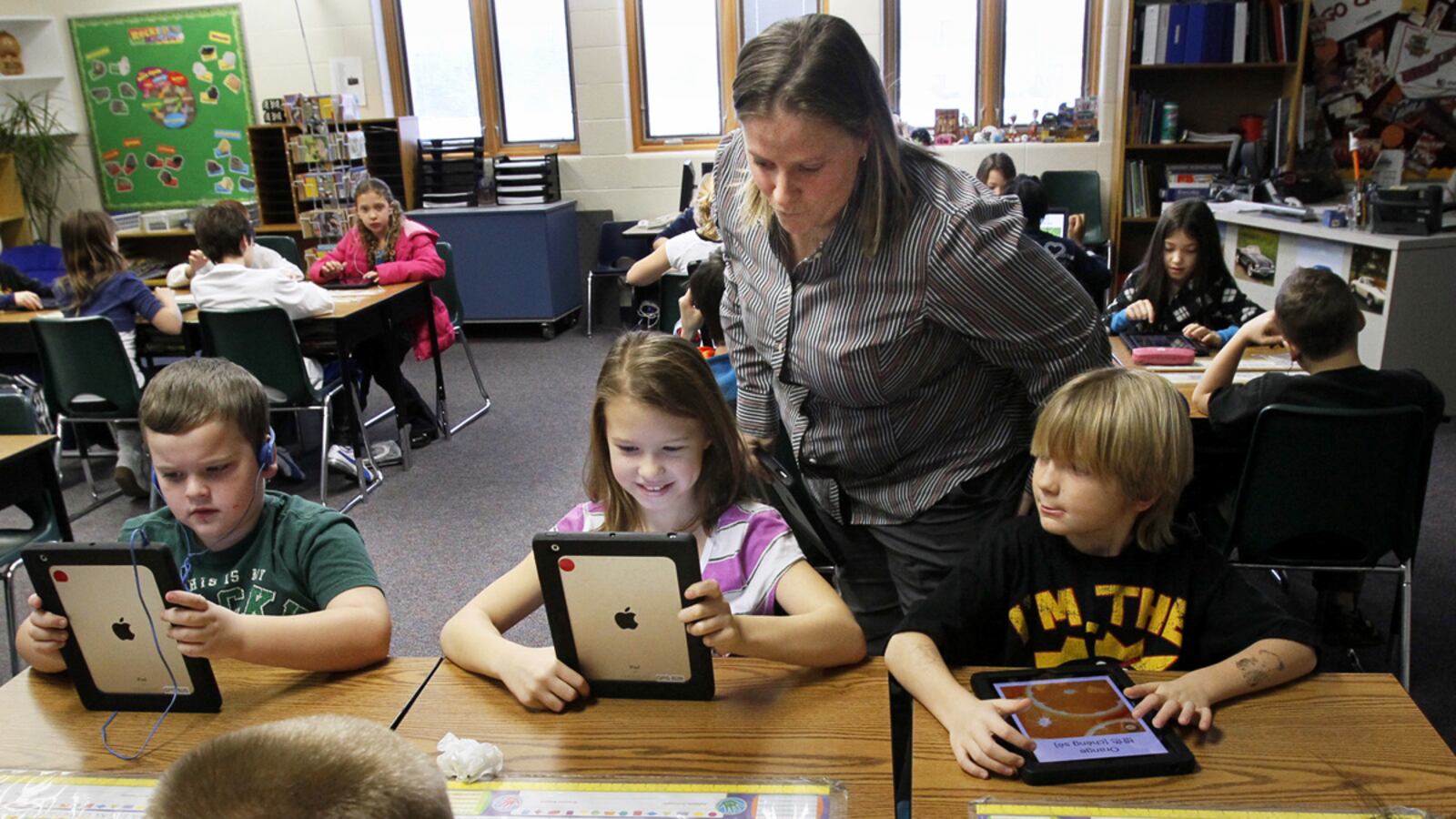If you ever wondered why Apple has become the No. 1 tech company in the world, you need only look at its announcement today of a new initiative to bring electronic textbooks to the iPad.
Apple has lined up top textbook companies—Houghton Mifflin Harcourt, Pearson, and McGraw-Hill—as partners. Another partner is renowned biologist E. O. Wilson. Apple says the goal is to reinvent textbooks and improve the education system. At a press conference in New York, Apple showed off some incredible textbooks that featured loads of interactivity and moving videos embedded into the pages.
Putting everything on an iPad would produce significant advantages. The most obvious improvement is that kids wouldn’t have to lug around 40 pounds of textbooks. Another is that textbooks are ridiculously expensive. Worse, they’re often out-of-date, sometimes badly so. An e-book can be updated simply by zipping a bit of data over the air.
But to me the real significance of this campaign is simply what it says about Apple and its seemingly limitless ambition and vision.
While its rivals are still trying to build a tablet computer that can do what the iPad does, Apple has already moved past the hardware and is focusing on ways to use the device.
This has always been the genius of Apple—the company doesn’t think in terms of products. Rather, it thinks about people and about how to use technology to make life better and easier for them.
Instead of just building products, Apple builds an ecosystem.

In this case, it has built an online bookstore where people can buy content, and now it's teamed up with textbook companies that will create books for the store. Apple has even created authoring tools to help textbook publishers crank out more books for the iPad.
It also showed off an iPad app called iTunes U, which professors can use to beam videos of lectures to students and to make entire courses available to iPad users. Profs can also use the app to distribute syllabuses and post messages to students. Apple claims iTunes U is already being used at 1,000 universities.
Not everyone’s a fan. I spoke yesterday to Bill Goodwyn, the president of Discovery Education, a division of Discovery Communications, which runs cable-TV channels including Discovery Channel, Animal Planet, and Science.
Discovery Education develops electronic textbooks (it calls them “techbooks”) that run on any platform—a laptop, desktop, or tablet device.
Goodwyn says he and his team met with Apple a year ago, and “the proposal they had just didn’t make sense for us,” he says.
The biggest problem, Goodwyn says, is that Apple wanted to get between textbook providers and their customers—that is, school systems. Apple, not the textbook creator, would have a relationship with the customer.
“For us to have impact on student achievement, we have to work closely with the district,” Goodwyn says. “It’s not just about selling books to schools. We want to get involved in professional development, teacher training, helping them develop lesson plans. We have a whole program to help teachers make the transformation to digital learning.”
That issue will sound familiar to magazine publishers, many of whom were excited, at first, to strike partnerships with Apple to create digital versions of their publications—only to become disappointed when Apple made clear that publishers would not be able to sell directly to customers. Instead, the deal was that Apple would sell to customers and just pass a royalty check on to the magazine publishers—a much less attractive proposition, because publishers want to be able to communicate directly with their subscribers and manage that relationship themselves.
Whether digital textbooks will catch on and become a huge market remains to be seen. Companies have been trying to do this for at least a decade, without much success.
There are big hurdles, of course, not the least of which will be getting a $500 tablet computer into the hands of every schoolchild and college student.
Months ago I was told by a first-year student at Harvard that hardly any of her classmates were using iPads, mostly because it’s difficult to take notes on them. Notebook computers (most often Macs) or old-fashioned notebooks (the kind made of paper) were the norm.
I’ll bet, however, that if you told all those Harvard kids they could trade all those huge textbooks for a sleek little iPad, they’d jump at the chance.
Maybe the market is finally ready for electronic textbooks. If so, Apple’s early move into the space will likely ensure that it reaps the lion’s share of the market and will demonstrate once again why Apple remains so far ahead of its rivals.






